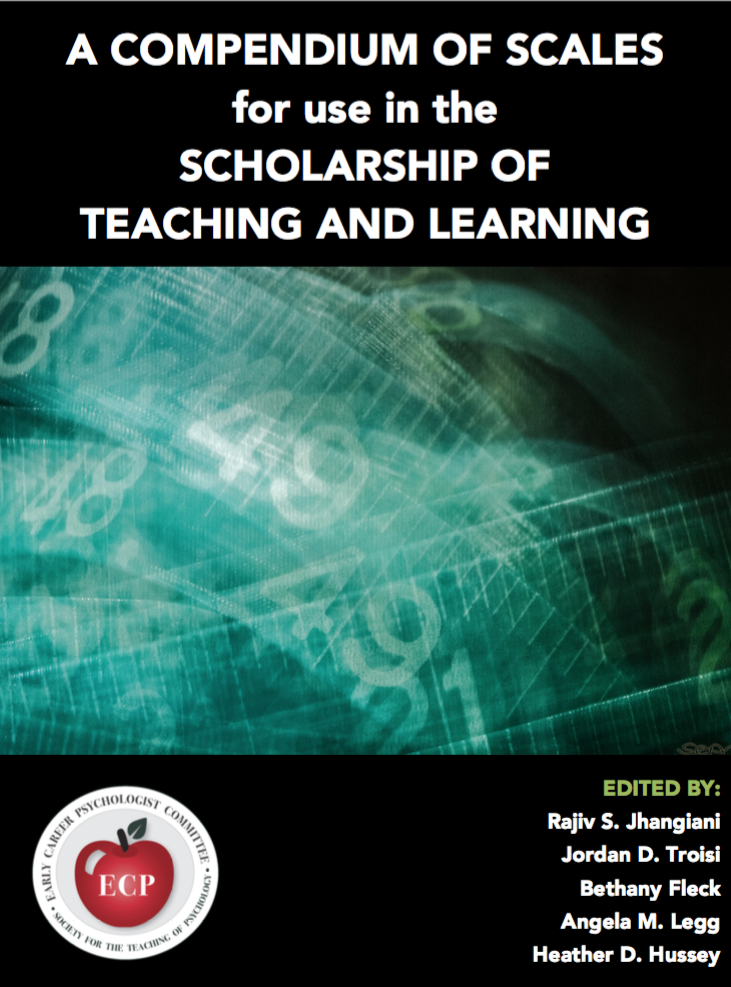- News
- Compendium of Scales for the use in the Scholarship of Teaching and Learning
| DescriptionThe 2015 Early Career Psychologists Committee created this e-book to encourage and support Scholarship of Teaching and Learning (SoTL) research in psychology. Very few resources exist that provide an evaluative review of a variety of measurement tools, especially within the SoTL literature. Organized by topic, this compendium contains scale descriptions, validation information (if available), and marked references so scholars can examine past research that used each scale. In addition, the authors—each well established within their area of focus—provide advice on choosing appropriate scales, developing scales, and the types of scales the SoTL literature still needs. The e-book is divided into two sections, 1) choosing, using, developing, and validating scales, and 2) scales for use in SoTL including a broad range of topics such as critical thinking, learning and self-efficacy, professor-student relationships, well-being, service learning, and student perceptions of learning and teaching. Although this e-book will clearly be helpful to those just getting started in SoTL, it will be equally valuable to seasoned researchers or could serve as an excellent supplementary text for courses such as tests and measurements, research methods, and educational assessment. ISBN: 978-1-941804-40-7 Download e-book PDF (2.9 Mb)Once the file is open, you can use the bookmark panel in Adobe Acrobat Reader to navigate to the specific chapters. |
|

